Research Article
Issue Editorial Board
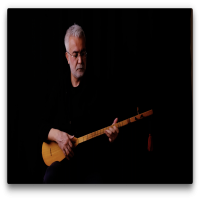


Can Doğan, 1986’da Konya’da dünyaya geldi. Küçük yaşlarda dedesi Haydar Doğan’dan aldığı ilham ile müzik çalışmalarına başladı. İlkokul dönemlerinde, blok flüt ile başladığı müzik yaşantısına lise dönemlerinde dedesine ait dilsiz kaval ile devam etti. Konya Selçuklu Lisesini (yabancı dil ağırlıklı) tamamlayarak, Ege Üniversitesi Devlet Türk Mûsikisi Konservatuarı’nda çalgı yapım ve temel bilimler bölümünün her ikisini de kazanan Doğan, temel bilimler bölümünde lisans eğitimini tamamladı. Ardından Selçuk Üniversitesi’nde pedagojik formasyon eğitimi alarak Millî Eğitim Bakanlığı bünyesinde kadrolu Müzik Öğretmeni olarak 3 yıl görev yaptı. Öğretmenliğe başladığı dönemde Cumhuriyet Üniversitesi Müzik Eğitim bölümünde tezli yüksek lisansa başladı ve yüksek lisans eğitimini “Geleneksel Halk Müziği Çalgılarından Zurnanın Eğitsel ve Öğretsel Süreçleri” başlıklı tez çalışması ile doktorasını ise Gazi Üniversitesi Güzel Sanatlar Enstitüsü’nde “Binali Selman ve Mey İcrâcılığı’nın Tahlîli” adlı tez çalışması ile Prof. Dr. Gülçin Yahya Kaçar danışmanlığında 2020 yılında tamamladı. Karabük Üniversitesi Cengiz Aytmatov Türk Dünyası Uygulama ve Araştırma Merkezi müdür yardımcılığı görevinde bulunan Doğan, aynı zamanda farklı üniversitelerdeki akademisyenleri bir araya getirerek Akademik Türk Dünyası Dans ve Müzik Topluluğunu kurdu. 2015-2020 yılları arasında Karabük Üniversitesi’nde öğretim görevlisi olarak görev yapan Doğan, üniversite bünyesinde ilk kez başlattığı dilsiz kaval, mey ve zurna dersleri ile bölümün yapılanmasına önemli katkılar sağladı. Doğan, 2020 yılında Bolu Abant İzzet Baysal Üniversitesi Güzel Sanatlar Fakültesi Müzik Bölümüne öğretim üyesi olarak atandı. Cumhurbaşkanlığı İnsan Kaynakları Ofisi koordinasyonunda, Yetenek Her Yerde temasıyla, Bolu Valiliği ve Bolu Abant İzzet Baysal Üniversitesi ev sahipliğinde düzenlenen Batı Karadeniz Kariyer Fuarı (BATIKAF) nda Batı Karadeniz Üniversiteler Birliği Türk Halk Müziği topluluğunu oluşturdu. Geniş bir Halk Müziği repertuarına sahip olan Doğan, ulusal ve uluslararası birçok etkinliğe, solist ve üflemeli saz icrâcısı olarak katıldı ve alana katkısı olan birçok sunumda bulundu. Aralarında Almanya, İtalya, Polonya, Kırgızistan, Balkanlar ve Azerbaycan’ında bulunduğu pek çok ülkede Türkiye’yi temsil etti. Bakanlık, valilik, belediye gibi birçok resmi kurum ile tarafınca düzenlenen projelerde yer aldı. Ulusal ve uluslararası sempozyumlar ve koordinasyon toplantıları düzenleyen Doğan’ın, yazmış olduğu kitap bölümleri, ulusal ve uluslararası düzeyde çok sayıda bildiri ve makalesi yayınlanmıştır. Bolu Abant İzzet Baysal Üniversitesi Bilimsel dergiler ve yayınlar koordinatörlüğünü yürüten Doğan, halen bağlı olduğu kurumda akademik ve sanatsal çalışmalarını yürütmektedir.

Aygul Ahmadova (Ahmadova Aygul Shahmirza) was born in 1989 in Fuzuli district. In 2008, he graduated from the "Instrumental performance" department of the Shusha music college (sub-bachelor degree with honors), in 2013, he graduated from the "Art of Music" faculty of the Azerbaijan State University of Culture and Arts (bachelor's degree with distinction), in 2015, he graduated from the "History and Theory of Music" faculty of the Azerbaijan National Conservatory (with a master's degree with distinction). In 2022, he graduated from the Azerbaijan National Conservatory at the doctoral level and successfully defended his scientific research work and was awarded the title of Doctor of Philosophy in Art Studies by AAK.
Aygul Ahmadova, who started her work as a junior researcher at the Azerbaijan National Conservatory in 2015, then worked as a researcher, and since 2021, she has been working as a teacher at the Department of Ethnomusicology of the Azerbaijan National Conservatory. At the same time, since 2023, he is the head of the International Relations Department of the Azerbaijan National Conservatory. She regularly participates in international scientific conferences, symposiums, congresses and festivals held in Azerbaijan and abroad. Also, the researcher presents topics selected for their scientific relevance in international indexed journals
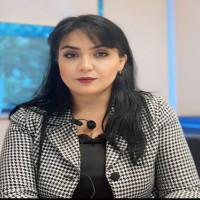

Advisory Board Member - Yedi Journal
İTÜ Türk Musikisi Devlet Konservatuarı Çalgı Eğitim Bölümü’nde lisans (2000), İTÜSosyal Bilimler Enstitüsü Türk Müziği Anasanat Dalı’nda yüksek lisans (2003), İTÜ Sosyal Bilimler Enstitüsü Müzikoloji ve Müzik Teorisi Anabilim Dalı’nda doktora (2008) eğitimini tamamladı. İTÜ Türk Musikisi Devlet Konservatuarı Müzikoloji Bölümü’ne 2005’te araştırma görevlisi, 2008’de yardımcı doçent, 2011’de doçent ve 2017’de profesör olarak atandı.
Akademik hayatı boyunca konservatuar yönetim kurulu üyeliği, Müzikoloji Bölüm Başkan Yardımcılığı, Müzikoloji Bölüm Başkanlığı gibi çeşitli idari görevlerde bulundu. Yurt içi ve yurt dışında çeşitli kongre, sempozyum, panel ve seminerlere bildirileriyle katılımının yanı sıra, yine yurt içi ve yurt dışında çeşitli koro ve orkestralarda kemençe icracısı ve genel sanat yönetmeni olarak görev aldı. Ulusal ve uluslararası araştırma projelerinde yürütücü, araştırmacı ve danışman olarak bulundu, makaleleri ulusal ve uluslararası dergilerde yayınlandı. 20 Kasım 2014’te Türkiye’de ilk kez Müzikoloji Bölümlerini bir araya getirdiği ‘1. Müzikoloji Bölümleri Çalıştayı’nı bölümü adına düzenledi ve ardından çalıştaya ait kitabı yayına hazırladı (Mart 2015). ‘Anadolu’dan Balkanlara Kemençe’ başlıklı kitabı Haziran 2016, ‘Orkestral Müzikte Yeni Bir Tını: Kemençe Kuartet’ başlıklı kitabı 2020’de yayınladı.
“Osmanlı Türk Müziği’nde 19. Yüzyılın Son Çeyreğinden 20. Yüzyıla Uzanan Köprü: Dârü’l-Elhân Muallimi, Besteci ve Notacı İsmail Hakkı Bey”, “20. Yüzyılın İlk Çeyreğinde Bestecilikte Yeni Bir Soluk: Ali Rifat Çağatay”, “Osmanlı- Türk Müziği Teori Geleneğinin Dönüşümü: Kantemir ve Padua Ekolü, “Osmanlı-Türk Müziğinde Padişahların İzleri”, “19. Yüzyıl Batılılaşma Hareketlerinin Osmanlı- Türk Müziğine Yansımaları”, “Türk Müziği Tarihi Yazılabilir mi”, “Geleneğin Yeniden İcadı ve Türk Müziği’nde Bir Modernist: Hüseyin Saadettin Arel”, “1000 Yıllık Bir Geleneğin Bugünkü Tecelliyatı: Türk Makam Müziği Eğitim Sistemi Üzerine” başlıklı çalışmaları alanında yazdığı makaleler arasındadır.
Makam teorisi tarihi ve eğitimine ilişkin kitabı hazırlık aşamasında bulunmakta, lisans ve lisansüstü seviyede tarihsel müzikoloji, müzik tarihi ve makam teorisi içerikli dersleri yürütmekte ve kemençe icracılığına devam etmektedir.






 Web
Web
İzmir–Bornova doğumludur. İlk, orta ve lise öğrenimini İzmir Bornova’da tamamladı. 1984–1985 Akademik yılında Ege Üniversitesi Devlet Türk Musikisi Konservatuarı Temel Bilimler Bölümünde lisans öğrenime başladı ve 1990 yılında “Afyonkarahisar Müzik Folkloru” başlıklı lisans bitirme çalışmasıyla bu okuldan mezun oldu.
1992–1993 Akademik yıllarında Ege Üniversitesi Sosyal Bilimler Enstitüsü Temel Bilimler Anabilim Dalında yüksek lisans öğrenimini sürdürdü ve “Muzaffer Sarısözen’in Hayatı ve Türk Halk Müziğine Katkıları” başlıklı yüksek lisans çalışmasını sunarak, bu programı tamamladı. 1991 yılında Konservatuarda araştırma görevlisi olarak göreve başladı. 1994–1995 Akademik yılında Ege Üniversitesi Sosyal Bilimler Enstitüsü Halk Bilimi (Folklor) Anabilim Dalı Doktora Programına başladı. “Cumhuriyet Döneminde Türk Halk Müziği Alanında Yapılan Bilimsel Çalışmalar” başlıklı doktora tezini sunarak, 2000 yılında bu programdan mezun oldu. Bu yıllar içerisinde Ege Üniversitesi’nin çeşitli fakülte ve yüksekokullarında Türk Halk Müziği topluluklarını yönetti. Yüksek lisans ve doktora öğrenimi süresince Batı Anadolu’da halk müziği derleme ve alan çalışmaları gerçekleştirdi. Bu çalışmaların bir kısmı ulusal/uluslararası bilimsel toplantılarda sunulan bildiriler ile süreli yayınlarda makale, nota yayınları ve kayıtlı müziksel malzemeler olarak yayımlandı.
2002 yılında Ege Üniversitesi Devlet Türk Musikisi Konservatuarı Ses Eğitimi Bölümünde yardımcı doçent kadrosuna atandı; 2008 tarihinde de İstanbul Teknik Üniversitesi Türk Musikisi Devlet Konservatuarı’nda “Müzik Bilimi” alanında YÖK tarafından açılan doçentlik sınavını vererek, bu alanda “doçent” unvanını aldı. 15 Mayıs 2017 tarihinde Ege Üniversitesi Devlet Türk Musikisi Konservatuvarı Ses Eğitimi Bölümü’nde profesör unvanını almış olan F. Reyhan ALTINAY, Ege Üniversitesi’nin dışında Dokuz Eylül Üniversitesi ve Afyon Kocatepe Üniversitesinde lisans/lisansüstü dersler, danışmanlık ve jüri üyelikleri görevlerinde de bulundu.
Prof. Dr. F. Reyhan ALTINAY, hâlen Ege Üniversitesi Devlet Türk Musikisi Konservatuarı Ses Eğitimi Bölüm Başkanı ve öğretim üyesi olarak görevini sürdürmektedir. Yayımlanmış kitapları: Cumhuriyet Döneminde Türk Halk Müziği (2004), Yurdumuzun Nağmeleri (Çevriyazım–Tıpkıbasım) (2008), Türkiye Halk Müziği Rehberi Belgelendirme Çalışmaları (2008), Türk Halk Müziği Makaleler Kitabı &DVD (2012), Dünya Ses Günü 2014 Sempozyumu ve Etkinlikleri & DVD (2015) dir. Ayrıca, yurt içinde ve yurt dışında yayımlanmış kitaplarda bölüm yazarlığı olarak; Türk Müzik Tarihine Giriş–I (2015), Deliorman Türklerinin Düğün Gelenekleri & CD (Bulgarca–Türkçe) Panel Bildirileri Kitabı (2013) bulunmaktadır.

1984 yılında Trabzon’da doğdu. Temel eğitimini Borçka ve Artvin’de aldı. Ege Üniversitesi D.T.M.K Türk Halk Oyunları Bölümünden 2009 yılında mezun oldu. Aynı üniversitede 2014 yılında yüksek lisansını, 2021 yılında doktora eğitimini tamamladı. Norveç Bilim ve Teknoloji Üniversitesi’nde ileri etnokoreoloji eğitimi aldı. Yurt içi ve yurt dışında birçok gösteri ve projede dansçı, müzisyen ve koreograf olarak görev aldı. Ulusal ve uluslararası bilimsel toplantılarda bildiriler sundu. 2019 yılında Paris EHESS’te(L’Ecole des hautes études en sciences sociales) doktora bursiyeri olmaya hak kazandı. Tunus Atlas Akademisi’nde, Hindistan Flame Üniversitesi’nde, İngiltere’nin Chichester ve Roehampton Üniversitelerinde horon, kemençe ve Gürcü dansları üzerine dersler verdi. ICTMD(International Council for Traditions of Music & Dance) üyesidir ve halen Ege Üniversitesi Devlet Türk Musıkisi Konservatuvarı Türk Halk Oyunları Bölümü’nde öğretim üyesi olarak görev yapmaktadır.

Aida Islam is a professor in the field of music education in the Faculty of Pedagogy “St. Kliment Ohridski”, University Ss. Cyril and Methodius Skopje, RN Macedonia. Graduated at the Faculty of Music in Skopje and has earned a PhD in Music Science. Professor Islam's primary research interests lie in the areas of music education, musicology, music tradition, and the sociology of music. Throughout her academic career, Professor Islam has made significant contributions to her field, authoring six books that delve into various aspects of music tradition and music education. Her scholarly work includes the publication of around 30 papers in indexed journals. She has actively participated in numerous international conferences across Europe, where she has shared her research findings and collaborated with other experts in the field.
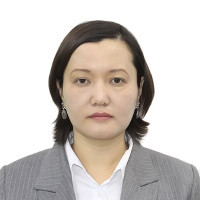

Azerbaycanın Emekdar Artisti. 09.10.1974 Bakü doğumlu. Bakü Müzik Akedemisinin doçenti. Azerbaycan Devlet Dans ekibinin müzik şefi ve Devlet kukla tiyatrosunun müzik müdüriyem.
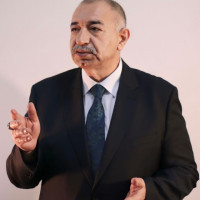
PROF. DR. TÜRKER EROĞLU
1959 YILINDA ELAZIĞ’DA DÜNYAYA GELDİ. KÜRSÜBAŞI SOHBETLERİNDE BAŞLAYAN MÜZİK SERÜVENİ HALKEVLERİNDE DEVAM ETTİ. BİR BANDO ASTSUBAYINDAN MÜZİK TEORİSİ DERSLERİ ALDI.
MÜZİĞİN İCRACILIĞINDAN ÇOK NEDEN VE NASIL OLDUĞUNUN ARKASINA DÜŞTÜ. MAHALLİ GAZETELERDE, DERGİLERDE YAZILAR YAZDI, ALAN ARAŞTIRMALARI YAPTI. BU İLGİSİ SEBEBİYLE, OKUDUĞU BİYOLOJİ BÖLÜMÜNÜ BIRAKARAK SOSYAL ANTROPOLOJİ BÖLÜMÜNE GİRDİ.
1985 YILINDA FIRAT ÜNİVERSİTESİ SOSYAL ANTROPOLOJİ BÖLÜMÜ’NDEN MEZUN OLDU. 1989 YILINDA ANKARA ÜNİVERSİTESİ ‘NDEN SOSYAL ANTROPOLOJİ ALANINDA BİLİM UZMANI, 1994 YILINDA ERCİYES ÜNİVERSİTESİ’NDEN HALK BİLİMİ ALANINDA BİLİM DOKTORU UNVAN VE DERECESİNİ ALDI.
KÜLTÜR BAKANLIĞI MİLLİ FOLKLOR ARAŞTIRMA DAİRESİ HALK MÜZİĞİ VE OYUNLARI ŞUBESİ’NDE ARAŞTIRMACI OLARAK ÇALIŞTI. BU DÖNEMDE HACETTEPE ÜNİVERSİTESİ HALK BİLİMİ BÖLÜMÜ’NDE DERSLER VERDİ. 1990-1997 YILLARI ARASINDA ERCİYES ÜNİVERSİTESİNDE GÖREV YAPTI. 1997 YILI MART AYINDA SAKARYA ÜNİVERSİTESİ’NE ÖĞRETİM ÜYESİ OLARAK ATANDI.
1999 YILINDA SAKARYA ÜNİVERSİTESİ DEVLET KONSERVATUVARINA KURUCU MÜDÜR OLARAK ATANDI. 12 YIL BU KURUMDAKİ GÖREVİNİ SÜRDÜRDÜ. 2011 YILINDA “SAHNE SANATLARI” ALANINDA DOÇENT OLDU. 2012 YILI MART AYINDA GAZİ ÜNİVERSİTESİ GAZİ EĞİTİM FAKÜLTESİ GÜZEL SANATLAR EĞİTİMİ BÖLÜMÜ, MÜZİK EĞİTİMİ ANABİLİM DALI DOÇENT KADROSUNA ATANDI.
2018 YILI MAYIS AYINDA AYNI BÖLÜME, HALK MÜZİĞİ ALANINDA, PROFESÖR OLARAK ATANDI.
ÜNİVERSİTELERDE BİRÇOK DOKTORANT VE BİLİM UZMANI YETİŞTİRDİ.
RADYO VE TELEVİZYONLARDA PROGRAMLAR YAPTI.
ÇEŞİTLİ MÜZİK VE HALK OYUNLARI YARIŞMALARINDA JÜRİ ÜYELİĞİ, EĞİTMENLİK, ÖĞRETİM GÖREVLİLİĞİ GİBİ GÖREVLER YAPTI.
BİR GURUP ARKADAŞIYLA MİLLİ FOLKLOR DERGİSİNİ KURDU.
HALK MÜZİĞİ, HALK OYUNLARI, DANS VE MÜZİK ANTROPOLOJİSİ, SAHNE SANATLARI ALANINDA ESERLER VERDİ.
2004 YILINDA KURDUĞU TÜRK GÜNEŞİ ADLI, DANS TİYATROSU TOPLULUĞU İLE ÇOK SAYIDA, KONULU TEMSİLLER SAHNELEDİ.
HALK DANSLARI, TİYATRO ALANLARINDA DANSÇI VE OYUNCU OLARAK SAHNE ALDI. HALK MÜZİĞİ ALANINDA KONSERLER VERDİ.
ÇOK SAYIDA TEBLİĞ VE MAKALESİ, BİRİ ŞİİR KİTABI OLMAK ÜZERE 11 ADET KİTABI BULUNMAKTADIR.
EVLİ VE ÜÇ ÇOCUK BABASI OLAN EROĞLU, GAZİ ÜNİVERSİTESİ GAZİ EĞİTİM FAKÜLTESİ GÜZEL SANATLAR EĞİTİMİ BÖLÜMÜ MÜZİK EĞİTİMİ ANABİLİM DALI ÖĞRETİM ÜYESİDİR.

Sara Islán Fernández is an ethnomusicologist, lecturer at the Autonomous University of Madrid and the Alfonso X el Sabio University in Spain. She holds a degree in Philosophy from the Complutense University of Madrid and a master's degree in “Arts du Spectacle” from the Université Libre de Bruxelles. Her master’s thesis focused on applying postmodern critiques of the concept of authorship to the field of choreographic activity, using the work of Pina Bausch and her Tanztheater Wuppertal company as a case study. This work sparked her interest in collective and community creation processes, leading her to the study of traditional music and dance. In 2010, she moved to Turkey, where she spent more than a decade immersed in extensive fieldwork. The results of this research are reflected in her doctoral dissertation, defended on March 1, 2024, at the University of Valladolid. It was co-supervised by Raquel Jiménez Pasalodos and Jérôme Cler and is the first ethnographic analysis of the community dances halay of the Şanlıurfa region (Turkey) and their musical accompaniment. Currently, she continues her research in Spain in the fields of ethnochoreology, oral tradition music, heritage-making processes, and performativity theory as applied to ethnomusicology, among others. She combines her academic pursuits with teaching as well as her involvement in various musical projects.

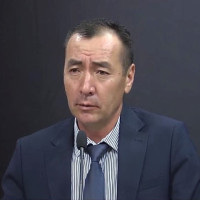
Aim & Scope
The main purpose of the Journal of Music and Folklore Studies is to contribute to the production of scientific knowledge by including field literature in various formats, such as original, compilation, criticism, transcriptions, translations, and promotions, appropriate to the academic discipline in the fields of musicology, ethnomusicology, folklore and interdisciplinary music, adhering to ethical and moral principles. Thus, it aims to contribute to the development of relevant fields through its publications and to have a distinguished place in the national and international academic world in musicology, ethnomusicology, folklore, and interdisciplinary music studies.
Journal of Music and Folklore Studies (JMFS), covers musicology, ethnomusicology, folklore, and all interdisciplinary music studies conducted within an academic discipline, in accordance with scientific ethics and principles. It is an international, peer-reviewed, academic journal that evaluates these studies within its own rules and committees. In addition, evaluations, criticisms, translation articles, and summaries of studies published in the fields of music and folklore are also accepted by the journal.
Author Guidelines
Do not forget to use the template below while preparing your article!!!
Article writing templates:
Click here for the single-author article writing template written in English.
Click here for the article writing template with 2 or more authors written in English.
Click for the book review template.
Click for sample reference illustrations.
*APA 7 citation system must be used in the articles.
*Articles to be sent to our journal should be submitted with the user account opened through DergiPark.
*Research articles and reviews of scientific books are published in Turkish or English.
*Articles should have an introduction at the beginning and a conclusion at the end.
*Articles should not exceed 12 thousand words, including all tables, figures, references (bibliography) and appendices.
*Articles should be prepared in A4 paper size, using Cambria font in MS Word program.
*Main headings and sub-headings should be arranged in 11 point bold.
*The text should be written in 11 pt. 6 nk paragraphs and 1,15 line spacing.
*At the beginning of the articles, there should be Turkish and English abstracts
*Abstracts should be between 200-250 words and include the purpose, scope, method and short results of the article.
*Abstracts should be written in 9 font size, 0 pt paragraphs and single line spacing.
*3-5 Turkish and English keywords should be written under the abstracts.
*The introduction part should include the purpose, scope, method and research design of the study as an expanded version of the abstract.
*All manuscripts that pass the review process and are accepted for publication should be accompanied by an extended English abstract of 750-1000 words. (For the articles written in Turkish)
Ethical Principles and Publication Policy
Ethical Principles and Publication Policy
Journal of Music and Folklore Studies (JMFS) constitute the basis for the development and distribution of knowledge in an impartial and reputable manner. The processes followed in this direction are directly reflected in the quality of the work of the authors and the institutions that support the authors. Peer-reviewed studies are studies that embody and support the scientific method. At this point, it is important that all stakeholders of the process (authors, readers, researchers, publishers, referees, editors) comply with the standards for ethical principles.
Journal of Music and Folklore Studies (JMFS) adheres to national and international standards on research and publication ethics. It complies with the Press Law, the Law on Intellectual and Artistic Works and the Directive on Scientific Research and Publication Ethics of Higher Education Institutions. JMFS has adopted the International Code of Ethical Publishing published by the Committee on Publication Ethics (COPE), Directory of Open Access Journals (DOAJ), Open Access Scholarly Publishers Association (OASPA) and World Association of Medical Editors.
Journal of Music and Folklore Studies (JMFS) expects all stakeholders to carry the following ethical responsibilities within the scope of publication ethics.
The following ethical duties and responsibilities have been prepared in open access, taking into account the guidelines and policies published by the Committee on Publication Ethics (COPE).
The publication of an article in a peer-reviewed journal is essential in the development of a coherent and respected knowledge network. Peer-reviewed articles support and shape the scientific method. It is therefore important for all parties involved in publishing - authors, journal editors, reviewers and publishing organizations - to agree on standards of expected ethical behavior.
1. Ethical Principles
1. Authorship of the paper:
Authorship should be restricted to individuals who made significant contributions to the design, conduct or interpretation of the reported work. All those who made significant contributions should be listed as co-authors. If there are others who have participated in certain important aspects of the research project, they should be acknowledged or listed as contributors. The corresponding author should ensure that all appropriate co-authors are included and that there are no ineligible co-authors, and that all co-authors have seen and approved the final version of the manuscript and agree to its submission for publication.
2. Conflicts of Interest:
Authors: All authors must disclose in their manuscript any financial or other significant conflicts of interest that could be construed to influence the conclusions or interpretation of their manuscript. All sources of financial support for the project should be disclosed.
ReviewersReviewers should inform the journal editorial office about the review process if they suspect any conflict of interest in the manuscript they are reviewing and, if necessary, refuse to review the manuscript. In order to prevent conflict of interest, people from the institutions where the authors of the article work cannot serve as referees for the article.
Editors: Editors should have no personal or financial conflict of interest with the manuscript.
3. Data Access and Storage:
Authors are asked to provide raw data in connection with an article for editorial review and, where possible, should be prepared to provide public access to such data and, in any event, should be prepared to retain such data for a reasonable period after publication.
4. Fabricated Data Production and Forgery:
Fabricated and/or falsified experimental results, including images must not be used.
5. Duplicate / Multiple Article Submissions:
Articles found to have been submitted elsewhere or published elsewhere. If authors have used their own previously submitted or published work as the basis for a submitted paper, they must cite the previous work. They should also indicate how new contributions in addition to previous work are presented in their submitted manuscripts.
6. Intellectual Property Rights
• Authors confirm that the submitted manuscript (and any supporting material) is their intellectual property and that copyright has not been transferred to others.
• Authors confirm that the manuscript is free of plagiarism, fabrication, falsification, manipulated citations, and that the manuscript complies with JSS authorship policies.
• All manuscripts, revisions, drafts and typescripts remain the intellectual property of the author(s). Except as provided in the agreed license, the author(s) retains copyright to their work.
• Authors, reviewers and editors agree to keep confidential all communications, comments or reports from reviewers or editors.
• Reviewers and editors agree to keep confidential all manuscripts, revisions, and drafts except the final published typescript(s).
7. Correction, Retraction, Expression of Concern
* If the editors find minor errors in the published article that do not affect the findings, interpretations and conclusions, they may make corrections.
* Editors may retract the manuscript if there are major errors/omissions that invalidate the findings and conclusions.
* Editors may issue a statement of concern if there is a possibility of research or publication misconduct by the authors; if there is evidence that the findings are unreliable and the authors' institutions have not investigated the incident; or if the potential investigation seems unfair or inconclusive. The COPE guideline is taken into account with regard to the correction, retraction, and expression of concern.,
8. Publication of Studies Based on Surveys and Interviews
The Journal of Music and Folklore Studies adopts the principles of the Committee on Publication Ethics (COPE) "Code of Conduct and Best Practice Guidelines for Journal Editors" and "Code of Conduct for Journal Publishers" in order to provide ethical assurance in scientific periodical publishing. In this context, the following points should be followed in the studies submitted to the journal:
- Ethics committee approval must be obtained for research in all disciplines that require ethics committee approval, and this approval must be stated and documented in the article.
- In studies that require ethics committee approval, information about the approval (name of the committee, date and number) can be included in the method section. However, in case presentations in the article information form at the end of the article, information on the signature of the informed consent form should be included in the article.
Research requiring Ethics Committee approval is as follows:
• All kinds of research conducted with qualitative or quantitative approaches that require data collection from participants using survey, interview, focus group study, observation, experiment, interview techniques,
• Retrospective studies in accordance with the law on the protection of personal data,
Also;
• Obtaining and indicating permission from the owners for the use of scales, questionnaires and photographs belonging to others is necessary.
• Stating that copyright regulations are complied with for the intellectual and artistic works used is necessary.
9. Policy on Publishing Supplementary or Special Issues
Special issues can be published once a year upon the request of the Editorial Board. All processes for articles submitted for inclusion in the special issue are the same as the standard article process.
- Supplement or Special Issue: These are issues published in addition to the regular issues of a journal published at regular intervals. It consists of congress/symposium etc. event proceedings or articles on a specific topic.
- The page numbers in Supplementary or Special issues are numbered differently from the regular issues during the year.
- The number of Supplementary or Special issues cannot be more than 1/3 of the regular period. Special issues containing abstracts of congress proceedings are not included in this scope.
- Ratios of case reports, review and research articles (excluding congress abstracts) published in Supplementary or Special issues will be included in the ratios of articles published in other issues.
- Gift issues are not accepted as special or supplementary issues. They are numbered and uploaded as regular issues.
10. Journal Policies on Data Sharing and Reproducibility
Journal of Music and Folklore Studies (JMFS) encourages authors to submit additional materials and data that illustrate the results of their articles. If there is any restriction by the authors, this restriction should be shared with the editorial board at the time of manuscript submission.
JMFS encourages data to be shared and made publicly available if they do not violate authors, human rights or other privacy issues. Cited data, whether created by the authors or not, should be included in the reference lists of articles. Authors are also encouraged to include a data availability statement.
JMFS recommends that all authors make all of their data publicly available.
Actions against scientific research and publication ethics include:
Plagiarism: Representing the original ideas, methods, data or works of others as one's own work in whole or in part without citation in accordance with scientific rules,
Forgery: Using non-existent or falsified data in scientific research,
Distortion: Falsifying research records or data, falsifying devices or materials that were not used in the research, falsifying or shaping the results of the research in line with the interests of the persons and organizations receiving support,
Republishing: Presenting duplicate publications as separate publications for academic appointments and promotions,
Slicing: Inappropriately and inappropriately dividing the results of a research into parts in a way that disrupts the integrity of the research and publishing them in more than one issue and presenting these publications as separate publications in academic appointments and promotions,
Unfair authorship: Including or excluding people who have not actively contributed, changing the order of authors in an unjustified and inappropriate manner, removing the names of active contributors from the work in subsequent editions, using one's influence to have one's name included among the authors even though one has not actively contributed,
Other types of ethical violations:
a) Failure to specify the persons, institutions or organizations providing support and their contributions in publications made as a result of research conducted with support,
b) Using theses or studies that have not yet been submitted or defended and accepted as a source without the permission of the owner,
c) Failure to comply with ethical rules in research on humans and failure to respect patient rights in publications,
ç) Violating the provisions of the relevant legislation in human biomedical research and other clinical research,
d) Sharing the information contained in a work that he/she has been assigned to examine with others before publication without the express permission of the author,
e) To misuse the resources, spaces, facilities and devices provided or allocated for scientific research,
f) Making baseless, unwarranted and intentional allegations of ethical violations,
g) Publishing data obtained in surveys and attitude surveys conducted within the scope of a scientific study without obtaining the explicit consent of the participants or, if the research is to be conducted in an institution, without obtaining the permission of the institution,
h) To harm ecological balance in research and experiments,
ı) Failure to obtain the necessary permissions in writing from the authorized units in research and experiments before starting the studies.
i) Conducting research and experiments in violation of the provisions of the legislation or international conventions to which Turkey is a party regarding the relevant research and experiments.
j) Failure to comply with the obligation to inform and warn those concerned about possible harmful practices related to the scientific research conducted by researchers and authorities,
k) Not using the data and information obtained from other persons and institutions in scientific studies to the extent and in the manner permitted, not respecting the confidentiality of this information and not ensuring its protection,
l) Making false or misleading statements regarding scientific research and publications in academic appointments and promotions.
Authors' Responsibilities and Ethical Principles to Follow
• Studies must be original and research-based.
• It should be ensured that other authors whose names will be written in the article have contributed to the research. It is against scientific ethics to list people who have no academic contributions as additional authors or to rank authors based on non-scientific criteria such as title, age and gender, regardless of the order of their contributions.
• In multi-author articles, it should be clearly stated that the authors contributed to which phase of the article and to what extent.
• The article should not be sent to different journals at the same time and should not have been sent to another journal before. If it is sent, the publication process will be cancelled.
• Authors who submit articles to the journal are assumed to have read and accepted the publishing and writing principles of the journal, and the authors are deemed to have undertaken what is expected of them in these principles.
• Citation display and Bibliography list must be complete.
• Plagiarism should not be committed and fake data should not be included.
• As a result of the similarity scan, the similarity rate should not exceed 15% in order to initiate the referee process of the article.
• An article is included in a maximum of 2 PRELIMINARY CHECK processes, and if the issues communicated to the author are not corrected during this process, the article will be rejected.
• Previously rejected studies in our journal should not be resubmitted in the same way. In such a case, the studies will be rejected.
• The corresponding author must inform the journal editor in case of any conflict of interest.
Responsibilities of Referees and Ethical Principles They Must Follow
• Referees should act with the awareness that they are the main determinant of the academic quality of the article to be published in the journal and should make evaluations with the responsibility of increasing the academic quality.
• Referees should only agree to referee articles for which they have the expertise necessary to make an appropriate evaluation, can respect blind peer review confidentiality, and can keep details of the article confidential in every way.
• After the article review process, any information about the article reviewed should not be shared with others in any way.
•Referees should only evaluate the accuracy of the content of the articles and their compliance with academic criteria. The fact that the ideas expressed in the article differ from the referee's thoughts should not affect the evaluation.
• Referee reports must be objective and measured. Insulting, derogatory and accusatory expressions should be strictly avoided.
•Referees should avoid superficial and vague expressions in their evaluation reports. In evaluations with negative results, the deficiencies and flaws on which the result is based must be shown concretely.
• Referees must evaluate the articles within the time allotted to them. If they are not going to evaluate, they should notify the journal within a reasonable time.
Responsibilities of Editors and Ethical Principles They Must Follow
• Editors must accept into the evaluation process articles that will contribute to the relevant fields specified in the journal policy.
• Editors should not have any conflict of interest/relationship with the accepted or rejected articles.
• Editors have full responsibility and authority to accept or reject an article.
• It is the editors' responsibility to keep the names of the referees and authors mutually confidential.
• Only articles that contribute to the field should be accepted.
• It should support the release or retraction of corrections when errors are found.
• It is the duty of the editors to complete the preliminary review, refereeing, editing and publishing processes of the articles sent to the journal in a timely and sound manner.
• Editors should not list people who have not contributed to the journal as editorial board members or assistant editors.
2. Publication Policy
Any manuscript considered for publication in JMFS must meet the following criteria:
• Originality
• No ethical violations
• Containing clear messages to be conveyed to the scientific community
• To what extent it will contribute to researchers in the field and its importance in terms of social sciences
•Current areas and topics that researchers in the field of music are interested in
• Structural and logical integrity
• Research results are based on scientific evidence
• Appropriateness of the scientific method
Evaluation of Articles
Articles are submitted to JMFS by registering to the "Article Management System" at https://dergipark.org.tr/tr/pub/jmfs. Articles sent by e-mail will not be evaluated.
Pre-Review and Plagiarism Screening
Articles are examined for compliance with the journal's spelling rules and similarity scanning is performed to prevent plagiarism. Articles are scanned for similarity using the iThenticate plagiarism scanning program. The similarity rate is required to be less than 15%. If the similarity rate is more than 15%, the study is either rejected or sent back to the author to reduce the similarity rate. The pre-review is completed within a maximum of 20 days.
Editor/Field Editor Review
Studies which go through the pre-review and similarity screening phase, are examined by the relevant editor / field editor in terms of subject, scope, language and academic competence. This review is completed within a maximum of 20 days.
Referee Process (Double-Blind Referee)
Studies which go through the pre-review and editorial review undergo a confidential double-blind peer review process. According to the double-blind strategy, authors who submit publications to the journal cannot know who the peer reviewers are. Likewise, peer reviewers who evaluate an article cannot know whose article they are evaluating. In other words, the peer review process is conducted by keeping both authors and peer reviewers anonymous to each other. Articles are sent to at least two referees for evaluation. Additionally, reports are stored in the Article Management System. For detailed information, visit the Referee Guide page.
Author Edit
Authors take into account the feedback, criticisms, and recommendations of the reviewer and the Editorial Board. In case of any disagreement, they have the right to appeal with their justifications. Authors edit the article as per the reports and upload the final version of the article to the system.
Field Editor Review
The field editor checks whether the author has made the requested corrections in the text. If there is a "Major Revision" in the referee reports, the article is sent to the relevant referee. If there is "Acceptance" or "Minor Revision" and the edits have been made, the article can be directed to the language control stage (The checking process is completed within a maximum of 5 days). If it is detected that the corrections have not been made, the editor re-sends the article to the author. If the author does not make the corrections again, the article may be rejected. Articles that are not accepted for publication are not deleted from the system. The process phases and all the files are stored in the system.
Turkish Language Check
Studies which go through the peer-review process are reviewed by the Turkish Language Editor, and if necessary, corrections are requested from the author. The checking process is completed within a maximum of 5 days.
English Language Check
Studies which go through the Turkish language check are reviewed by the English Language Editor, and if necessary, corrections are requested from the author. The checking process is completed within a maximum of 5 days.
Editorial Board Review
Studies which go through technical, academic and linguistic reviews are reviewed by the Editorial Board and their final publication status is decided. In case of objection from the members, the Board decides by majority vote.
Typesetting and Layout Stage
The journal undertakes the typesetting and layout processes of the studies accepted for publication by the Editorial Board.
Language
Turkish and English articles are published in JMFS. Articles published in Turkish also include English abstracts. Articles published in English do not have to include a Turkish abstract. If the article is written in a language other than English, an extended English summary should be added after the bibliography. The extended abstract must have the same writing rules as the article and must be 750-1000 words.
Author Change
JMFS Journal accepts article authors according to the declaration on the Title Page of the article. Therefore, it is the authors' responsibility to submit the final version of the full author ranking. Requests for changes in authorship after article submission (e.g. removal/addition of authors, changing the order, etc.) are subject to editor approval. The Editorial Board will investigate such cases and act according to COPE flow charts.
Requests for changes in authorship must be submitted to the Editor with an official letter stating the reasons for the change. The letter must be signed by all authors and include their confirmation of the change of authorship. If the request is approved by the Editorial Board, authors are required to submit a new Copyright Agreement Form according to the final rank list.
Complaints and Objections
JMFS handles complaints and appeals following the procedure below. Complaints are not limited to long delays in reviewing studies and publication ethics; all complaints are first addressed by JMFS's editor-in-chief. The editor-in-chief may review complaints and objections together with the Editorial Board when necessary. In case of any complaints or objections, please contact jmfs@sakarya.edu.tr
Complaints About the Content of an Article
The editor-in-chief reviews the authors' complaints and the reviewers' reports and makes a decision:
• Confirmation that the article has been rejected,
• Considering the author's objection,
• A new opinion is required from an independent referee.
The editor-in-chief's final decision is notified to the authors. The explanation regarding the results of the objection is shared with the authors when deemed necessary. This is the final decision of JMFS.
Complaints About Processes
Complaints about the processes are handled by the editor-in-chief. Long delays in the processing of studies are examined by JMFS editors, and any problems deemed necessary are shared with the editor-in-chief. The editor-in-chief evaluates the complaints, and when deemed necessary, information is shared with the authors.
Complaints About Ethical Principles
The editor-in-chief takes into account the author's or referee's complaints about publication ethics. The editor-in-chief follows editorial ethics as published on the JMFS website. JMFS's editorial board reviews the concerns of complainants or reviewers. Details and progress of the investigation are openly shared with complainants. The editor-in-chief or associate editors provide feedback to complainants about the course of action and final decision.
Disclaimer
The views and opinions expressed in the articles published in the journal reflect the perspectives of the author(s) and not of the JMFS Journal, the Editor-in-Chief, the Editors and the Publisher. The Editor-in-Chief, Editors, Editorial Board and Publisher accept no responsibility or liability for such situations. All responsibility for the published content belongs to the authors.
Price Policy
• JMFS journal does not charge any fees for article submission, referee and editorial processes, layout and publication printing (page or color fees).
• JMFS journal does not pay any fees to authors, referees, editors and editorial board.
• Articles in JMFS magazine are free to read and download.
• JMFS journal has signed the Budapest Open Access Initiative (BOAI), which promotes free access to research literature, and has accepted the Open Access Principles announced in this initiative.
• All works in JMFS magazine are archived with the LOCKSS (Lots Of Copies Keep Stuff Safe) system through TÜBİTAK ULAKBİM DergiPark.
• In accordance with JMFS magazine's publication policy, announcements, advertisements, sponsorships, and etc are not accepted.
• JMFS is an open access journal that does not charge any subscription fees.
• Reprint services are not available for those who need professional quality reproductions of their articles.
• All expenses of JMFS magazine are covered by Sakarya University.
Indexes
Journal Boards
Editor in Chief

Vice Editor


Editorial Board







 Web
Web










Sectıon Edıtor ( Minstrel Tradition)
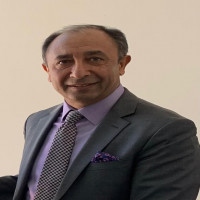
Section Editor (Dance)

Section Editor (Classical Turkish Music Theory)

Sectıon Editor (Turkish Religious Music)

Section Editor (Maqam in Turkish Music, Mevlevi Rituals)

Section Editor (Turkish Folk Music İnterpretation, Alevi-Bektashi Musical Tradition)

Section Editor (Turkish Folk Music, Music Theory)

Sectıon Editor (Interpretation in Turkish Classical Music)

Sectıon Editor (Turkish Folk Dances, Choreology)

Section Editor (Turkish Religious Music, Ethnomusicology)

Section Editor (Folklore, Turkish Folk Literature)
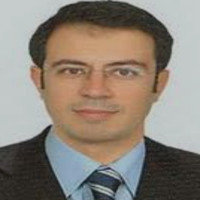
Language Editor (Turkish)

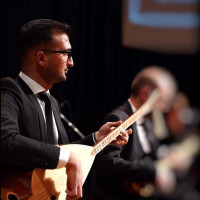
Language Editor (English)
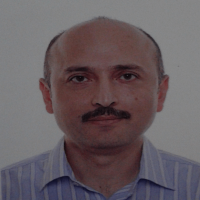
Technical Editor

Secretariat
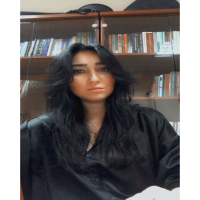
Layout Editor
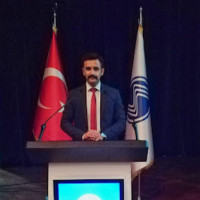


Boards of Advisory

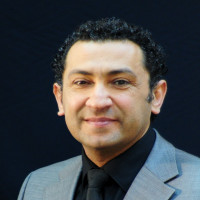
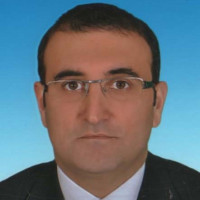




 Web
Web



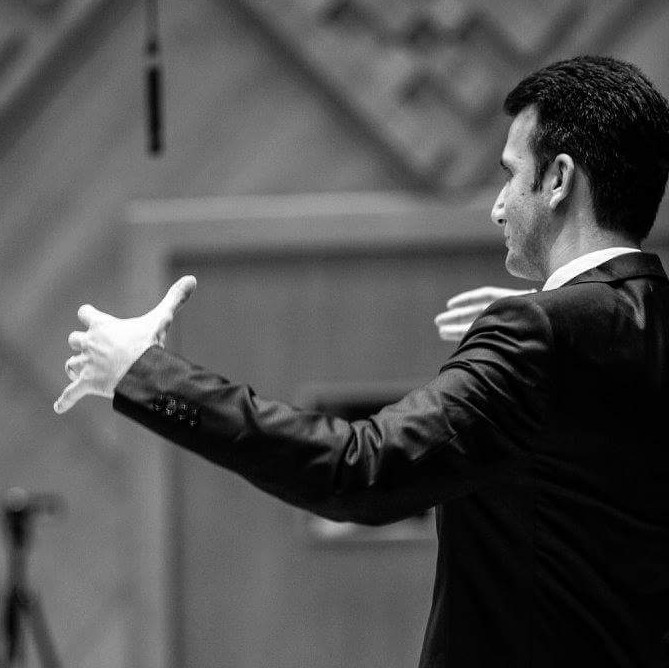




 Web
Web










 Web
Web

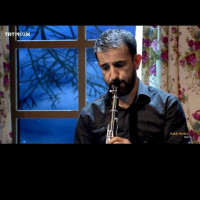
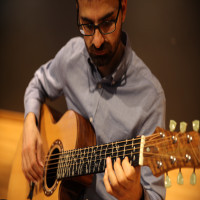







 Web
Web





